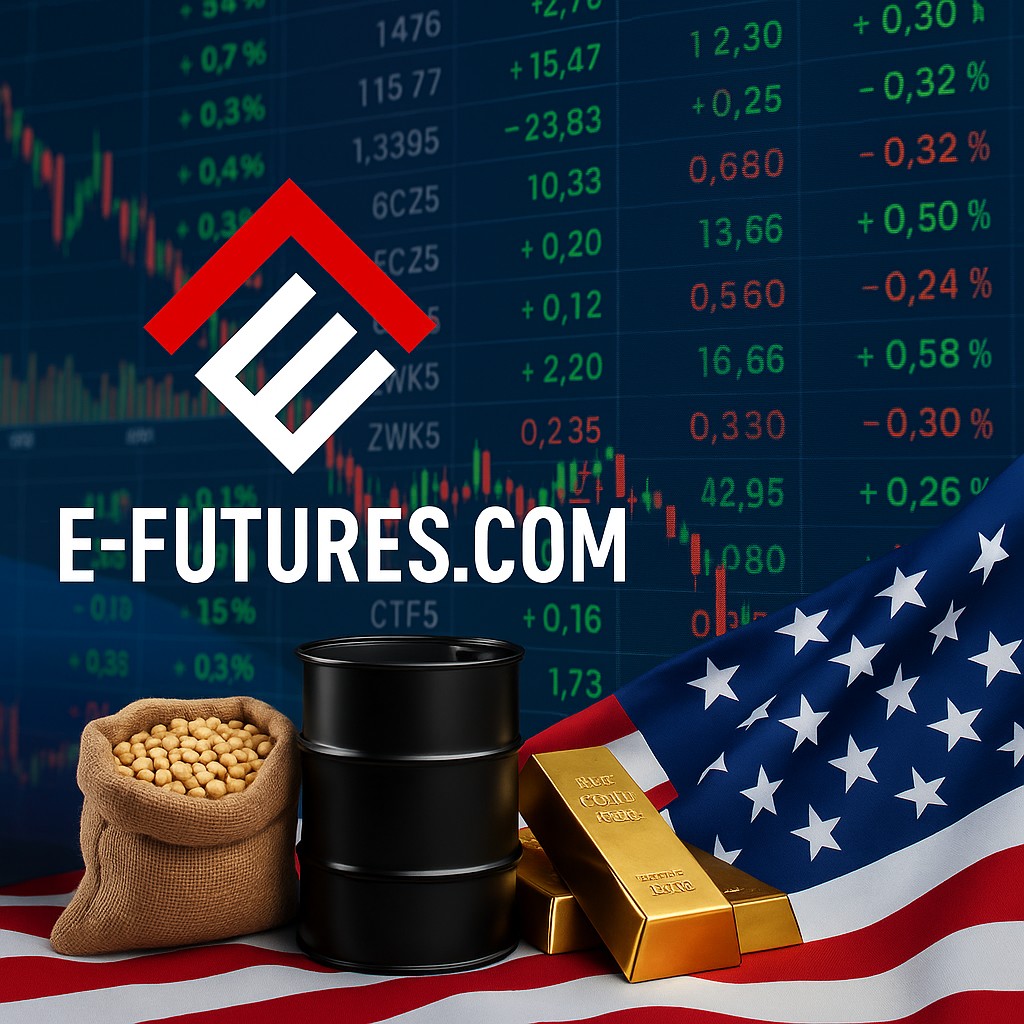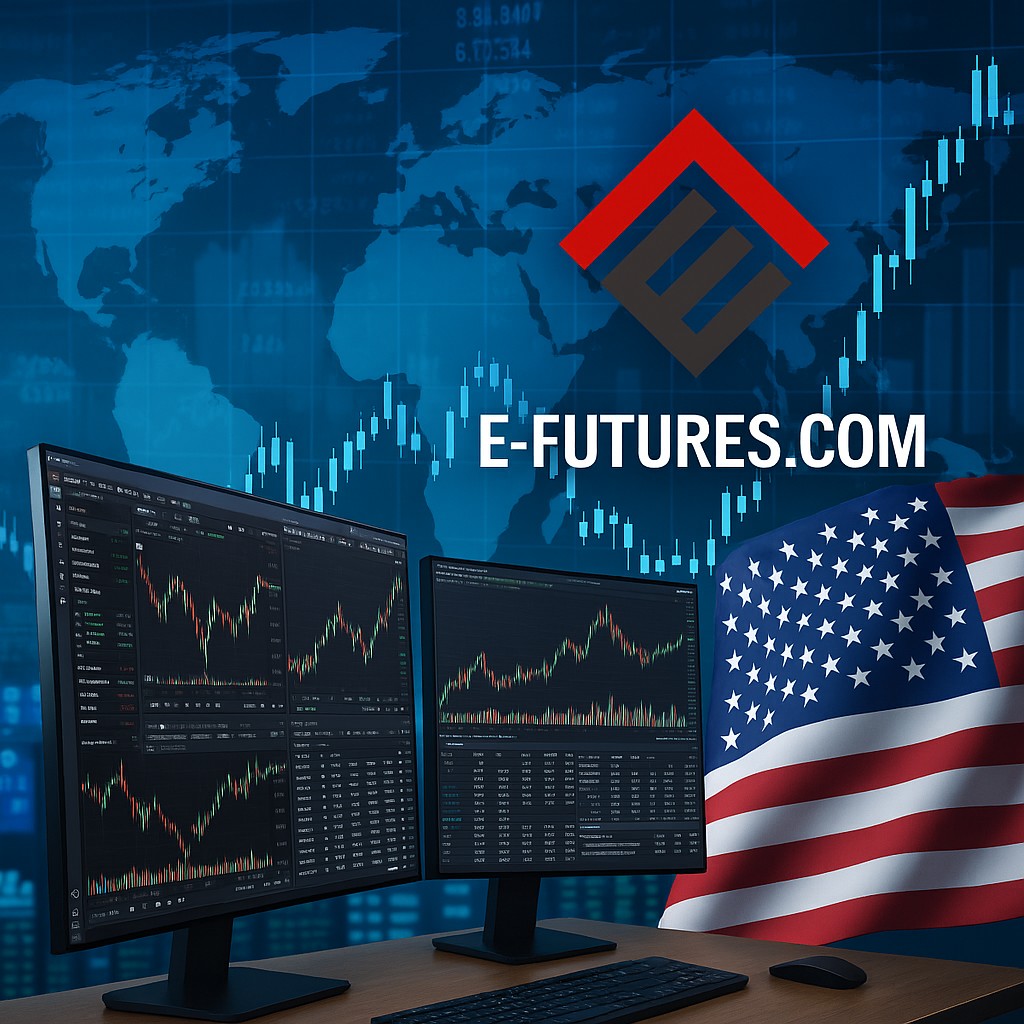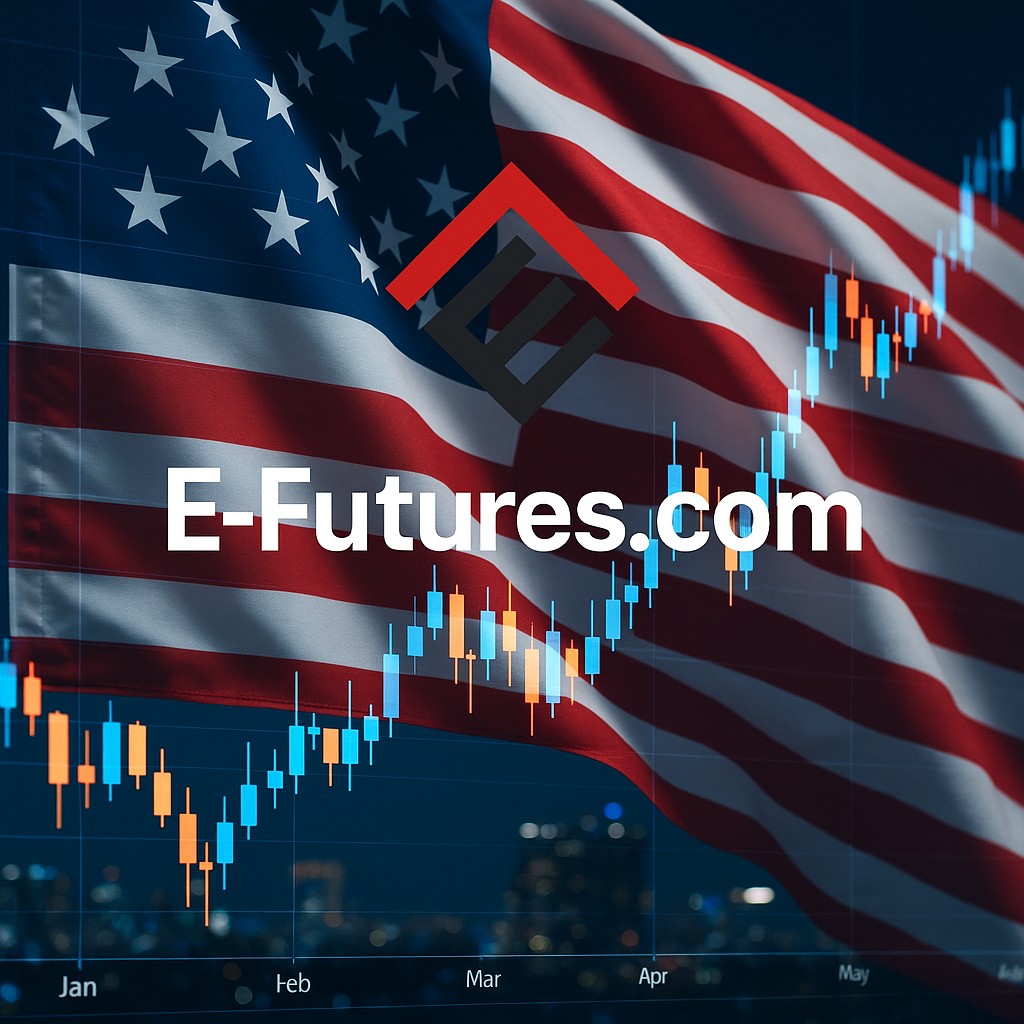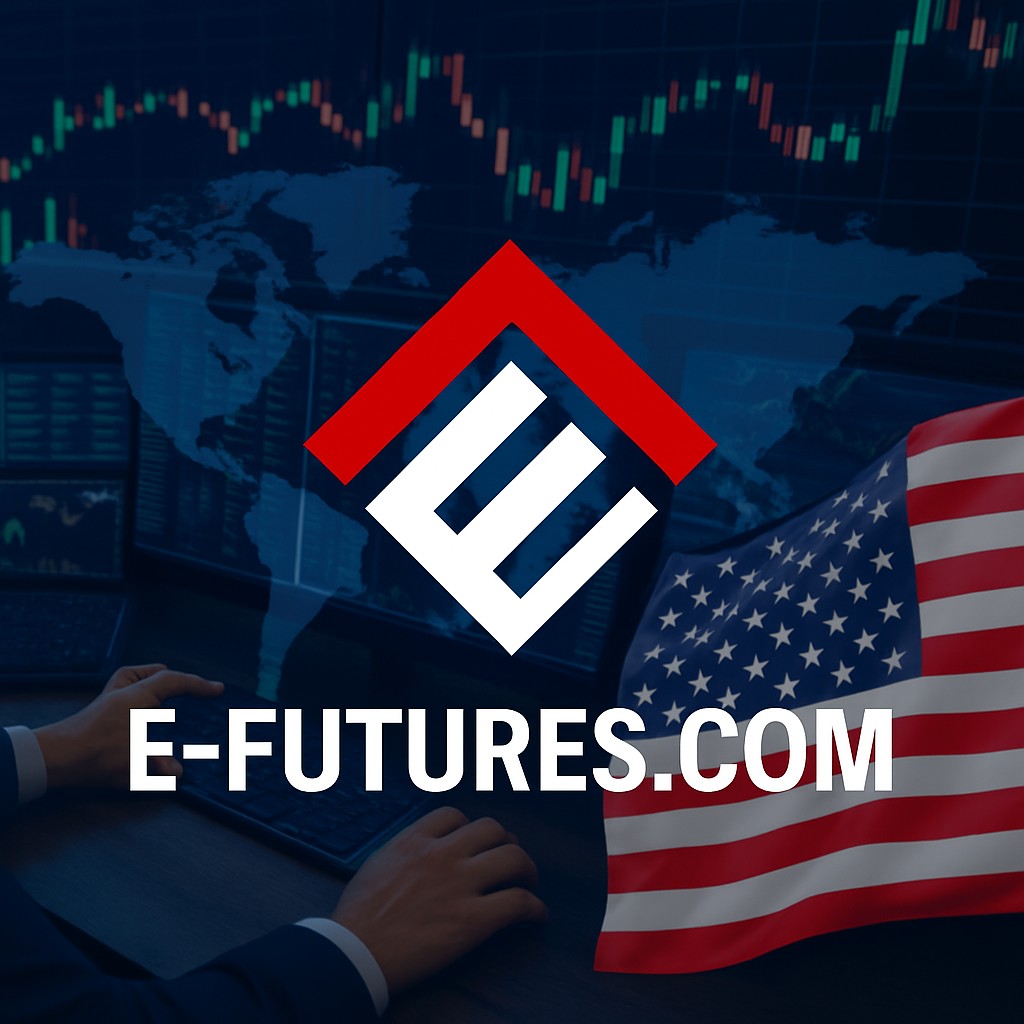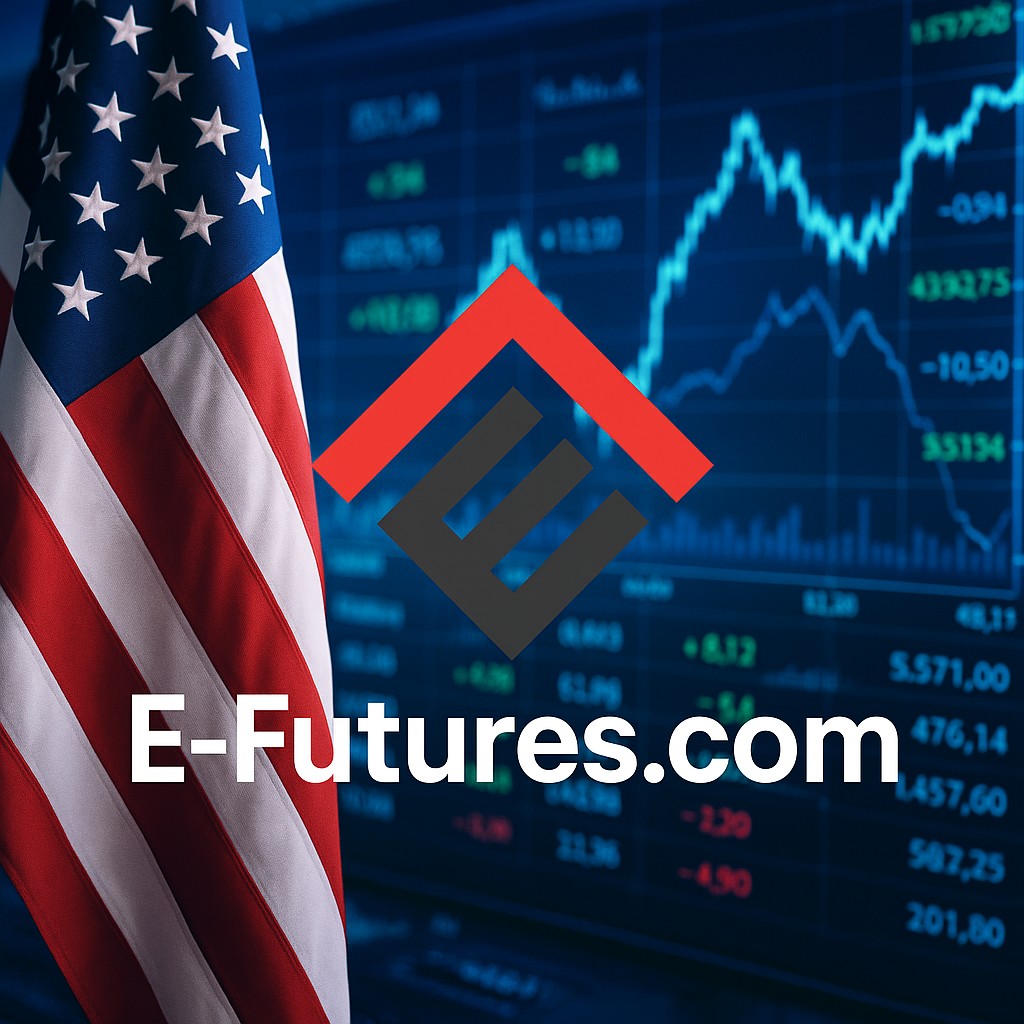The Evolving Landscape of Commodity Trading
Commodity trading has been a central pillar of the global economy for centuries, enabling producers and consumers to hedge risks and speculate on price movements across energy, agriculture, and metals. In the second half of 2025, commodity trading has reached new levels of complexity and opportunity. With the increasing integration of AI, geopolitical volatility, climate unpredictability, and shifting monetary policies, modern commodity traders must be equipped with cutting-edge tools, actionable insights, and reliable brokerage partners.
This article provides a comprehensive guide for commodity traders navigating the market in H2 2025. We’ll explore the dynamics influencing commodities trading, examine the role of volatility and market sentiment via the VIX, and show why partnering with a top-tier brokerage—like E-Futures.com with its high TrustPilot ratings and the CannonX powered by CQG futures trading platform—can be the smartest move traders make this year.
1. Understanding the 2025 Commodity Trading Environment
A. The Return of Commodity Super-Cycles?
The first half of 2025 saw elevated interest in commodity trading as inflationary concerns, environmental disruptions, and political instability impacted supply chains. Energy commodities, especially oil and natural gas, experienced significant fluctuations due to unpredictable OPEC+ policies and the acceleration of green energy investments. Agricultural commodities were influenced by climate volatility—particularly in South America and Asia—where unpredictable rainfall and extreme temperatures impacted production.
As a result, traders in the commodities trading arena are now faced with markets that are not only more reactive but also more susceptible to speculation and herd behavior. This is a crucial time to adopt a strategic and data-driven approach to trading.
B. Digitization and AI in Commodities Trading
One of the major trends in H2 2025 is the growing role of automation, AI, and machine learning. Modern traders leverage algorithmic models not just for execution, but also for predictive analytics. Futures options trading platforms are now equipped with real-time pattern recognition tools and AI-generated sentiment analysis. These technologies help traders pinpoint opportunities in commodities markets with unprecedented speed and accuracy.
Platforms like CannonX powered by CQG are at the forefront of this evolution. Traders can access high-frequency data, customizable dashboards, and multi-layer charting systems—vital features for analyzing the nuances of price action in today’s volatile markets.
2. Volatility, Uncertainty, and the VIX in 2025 Commodities Trading
A. The VIX: Fear Gauge or Futures Ally?
The CBOE Volatility Index, or VIX, has traditionally been a barometer of fear in the stock market. But for commodity traders, especially in the second half of 2025, the VIX provides critical context for risk sentiment that directly influences commodities. A spike in the VIX often leads to broader selloffs or risk-off behavior across markets, including commodities like oil, gold, and wheat.
Understanding the relationship between the VIX and specific commodity futures helps traders anticipate sharp moves and hedge accordingly using futures options strategies.
B. Trading Volatility: A Daily Imperative
Given the macroeconomic uncertainties—ranging from interest rate surprises by the Federal Reserve to unexpected tariffs or sanctions—commodity markets are increasingly driven by sentiment and speculation. Daily trading decisions now require not just technical analysis, but also a clear understanding of volatility regimes.
Using advanced futures options trading platforms, traders can now visualize implied volatility and open interest in real-time. This enables better decisions on whether to initiate long or short positions, buy protective puts, or engage in spread strategies to benefit from volatility spikes.
3. Key Knowledge for Modern Commodity Traders in H2 2025
A. Intermarket Correlations Are Shifting
The traditional correlations between commodities and other asset classes like the U.S. dollar, equities, and interest rates are evolving. For example, the inverse relationship between gold and the dollar may weaken when global macro risks override historical patterns. Traders must remain flexible and data-centric, analyzing correlation matrices frequently using advanced platforms.
This is where CannonX powered by CQG becomes invaluable—it enables customizable correlation studies across markets in real-time, giving traders a competitive edge.
B. Regulatory Scrutiny and Risk Management
Futures brokers USA are operating under increased oversight as regulators double down on transparency and consumer protection. Traders must ensure that their futures broker options include firms that comply fully with federal standards, offer segregated funds for client accounts, and maintain robust risk disclosure procedures.
E-Futures.com excels in this domain, boasting decades of clean regulatory history and an exemplary reputation among independent futures industry watchdogs and federal bodies alike.
C. Global Events and Commodity Sensitivity
The geopolitical environment is highly unstable. Flashpoints in the South China Sea, trade wars, and sanctions can drastically impact commodity flows and pricing. A modern commodities trading strategy must account for these risks through dynamic hedging and adaptive positioning.
Traders using futures options brokers with global news integration and real-time alerts are far better equipped to respond. CannonX’s platform, for example, integrates live news tickers and economic data streams that help traders act swiftly when geopolitical risks escalate.
4. Why E-Futures.com Is the Best Partner for Commodity Traders in 2025
A. A 38-Year Legacy of Excellence
E-Futures.com has a long-standing presence in the futures industry, dating back 38 years. This kind of tenure isn’t just impressive—it’s rare. The brokerage has weathered economic crises, technological shifts, and regulatory overhauls, all while consistently serving a diverse base of retail and institutional traders.
Such experience translates to reliability. Whether it’s executing a complex futures options trade or managing risk across multiple accounts, E-Futures.com offers a level of professionalism that newer brokers simply cannot match.
B. TrustPilot Ratings and Client Satisfaction
With numerous 5 out of 5-star ratings on TrustPilot, E-Futures.com stands out not just for its platform but also its customer service and educational support. Traders praise the broker for its responsiveness, intuitive platform access, and knowledgeable support team. These reviews are not bought—they’re earned through consistent value delivery and integrity.
In an era where traders are overwhelmed by flashy marketing, these ratings matter. They represent real trader experiences and underscore why E-Futures.com is a top choice for commodities trading in H2 2025.
C. The Power of CannonX Powered by CQG
A brokerage is only as good as the platform it provides, and CannonX powered by CQG is a game-changer. This state-of-the-art futures trading platform offers:
- Lightning-fast execution
- Smart order routing
- Multi-device access
- Advanced charting and indicators
- Seamless futures options trading integration
For traders seeking a powerful, flexible, and professional-grade interface, CannonX delivers everything required to stay competitive in today’s volatile markets.
5. Choosing the Right Futures Broker Options in a Crowded Market
In a crowded marketplace full of promises, modern traders must evaluate futures broker options based on:
- Platform performance and reliability
- Regulatory transparency
- Cost structure and commission transparency
- Customer support quality
- Access to futures options trading platforms and analytics tools
E-Futures.com checks every one of these boxes, distinguishing itself among futures brokers USA and offering some of the best conditions for both beginners and advanced traders. It is not just a place to trade—it is a comprehensive solution for commodities trading success.
6. Looking Ahead: Opportunities and Risks in Commodities Trading
A. Bullish and Bearish Scenarios
Bullish case: Supply chain disruptions, emerging market demand, and persistent inflation could push commodity prices higher in H2 2025. This creates opportunities for long positions in agricultural futures, base metals, and energy contracts.
Bearish case: A global slowdown, deflationary pressures, or peace agreements could soften demand and trigger corrections in key commodities.
B. Strategic Use of Futures Options Trading
Futures options trading allows traders to navigate both scenarios efficiently. Whether it’s leveraging call spreads in bullish setups or protective puts in bearish conditions, the ability to execute these strategies on a high-performance platform like CannonX is crucial.
Futures options brokers like E-Futures.com not only provide access to these instruments but also offer educational support to help traders understand and deploy complex strategies.
The Smart Move for H2 2025 Commodity Traders
The second half of 2025 presents both formidable challenges and exciting opportunities in the world of commodities trading. Traders must embrace volatility, stay informed, and make decisions supported by data and robust infrastructure.
Choosing the right partner is not optional—it’s essential.
E-Futures.com stands tall among futures brokers USA, providing top-tier service, proven industry longevity, stellar reviews, and unmatched platform technology via CannonX powered by CQG. Whether you’re trading agricultural futures, gold options, or energy contracts, E-Futures.com offers the platform, support, and experience needed for consistent success.
For modern traders seeking excellence in every aspect of commodities trading—from execution speed and charting depth to regulatory peace of mind and educational support—there is no better brokerage to partner with in H2 2025.
Ready to start trading futures? Call us at 1(800)454-9572 (US) or (310)859-9572 (International), or email info@cannontrading.com to speak with one of our experienced, Series-3 licensed futures brokers and begin your futures trading journey with E-Futures.com today.
Disclaimer: Trading Futures, Options on Futures, and retail off-exchange foreign currency transactions involve substantial risk of loss and are not suitable for all investors. Past performance is not indicative of future results. Carefully consider if trading is suitable for you in light of your circumstances, knowledge, and financial resources. You may lose all or more of your initial investment. Opinions, market data, and recommendations are subject to change at any time.
Important: Trading commodity futures and options involves a substantial risk of loss. The recommendations contained in this article are opinions only and do not guarantee any profits. This article is for educational purposes. Past performances are not necessarily indicative of future results.
This article has been generated with the help of AI Technology and modified for accuracy and compliance.
Follow us on all socials: @cannontrading



